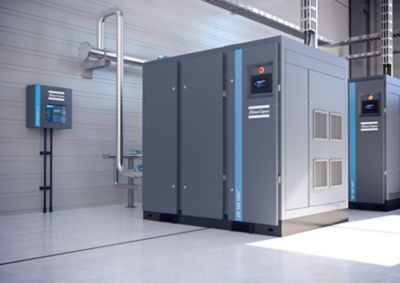Sustainable Mining: Balancing Economic Gain with Environmental Responsibility Using Compressors
June 27, 2024
Mining is a critical industry that fuels the global economy, providing essential materials for everything from construction to technology. However, its environmental footprint is significant, posing challenges that require innovative solutions. Sustainable mining practices aim to balance economic benefits with environmental stewardship, ensuring that the extraction of resources does not come at an irrevocable cost to nature.
Environmental Impact of Mining
Mining activities can have several detrimental effects on the environment:
- Deforestation and habitat destruction: Clearing land for mining activities often lead to deforestation and the destruction of ecosystems, endangering biodiversity.
- Water Pollution: The use of chemicals in mining, such as cyanide and mercury for gold extraction, can pollute water sources, affecting both wildlife and human populations.
- Air Pollution: Dust and emissions from mining operations contribute to air pollution, impacting respiratory health and contributing to climate change.
- Soil Erosion: The removal of vegetation and topsoil during mining leads to increased erosion, which can result in the loss of fertile land and sedimentation in water bodies.
Given these impacts, the mining industry faces growing pressure to adopt sustainable practices that mitigate environmental damage.
Importance of Sustainable Practices
Sustainable mining involves implementing practices that minimize environmental damage and promote resource efficiency. Key practices include:
- Resource Efficiency: Utilizing advanced technologies to maximize resource extraction while minimizing waste.
- Waste Management: Developing methods to safely dispose of or repurpose mining by-products.
- Water Conservation: Using water-efficient processes and treating wastewater to protect local water sources.
- Energy Efficiency: Reducing energy consumption through innovative technologies and renewable energy sources such as our energy-efficient compressors and heat recovery systems.
Implementing these practices not only protects the environment but also ensures the longevity of mining operations by preserving the resources they depend on.
Air Compressor Innovations in Green Mining Technology
At Atlas Copco, we do our part to contribute to green mining through innovative technologies and practices. Here are some noteworthy examples:
- Energy-Efficient Compressors: The variable speed drive compressors adjust their motor speed to match the required air demand of the application, significantly reducing energy consumption compared to their fixed-speed counterparts. Therefore, optimizing performance and minimizing waste.
- Oil-free Air Compressors: With their Class 0 certification, our oil-free compressors such as our LFx, SF, ZH, or more, ensure zero risk of oil contamination, which is crucial for processes requiring clear air, thus minimizing environment hazards.
- Heat Recovery Systems: By adding a waste energy recovery technology to a compressed air system, up to 94% of the energy generated by the compressor can be recovered and used elsewhere. It can therefore help reduce the overall energy consumption of the mining plant.
- Advanced Control System such as SMARTLINK offers real-time monitoring and remote control of compressor performance, enabling predictive maintenance and optimize energy usage.
Conclusion
The future of mining lies in balancing economic gain with environmental responsibility. Sustainable practices and innovative technologies are essential for reducing the industry's environmental impact. Innovations such as variable speed drive and oil-free air compressors as well as energy recovery and monitoring systems are pivotal in this eco-friendly transformation. By continuing to innovate and implement sustainable practices, the mining industry can ensure its future while protecting the planet.

